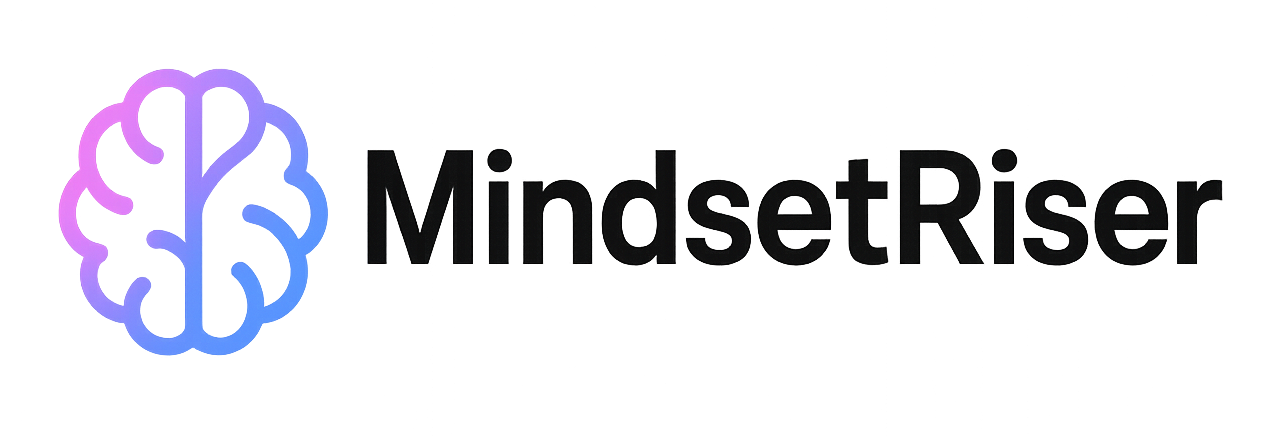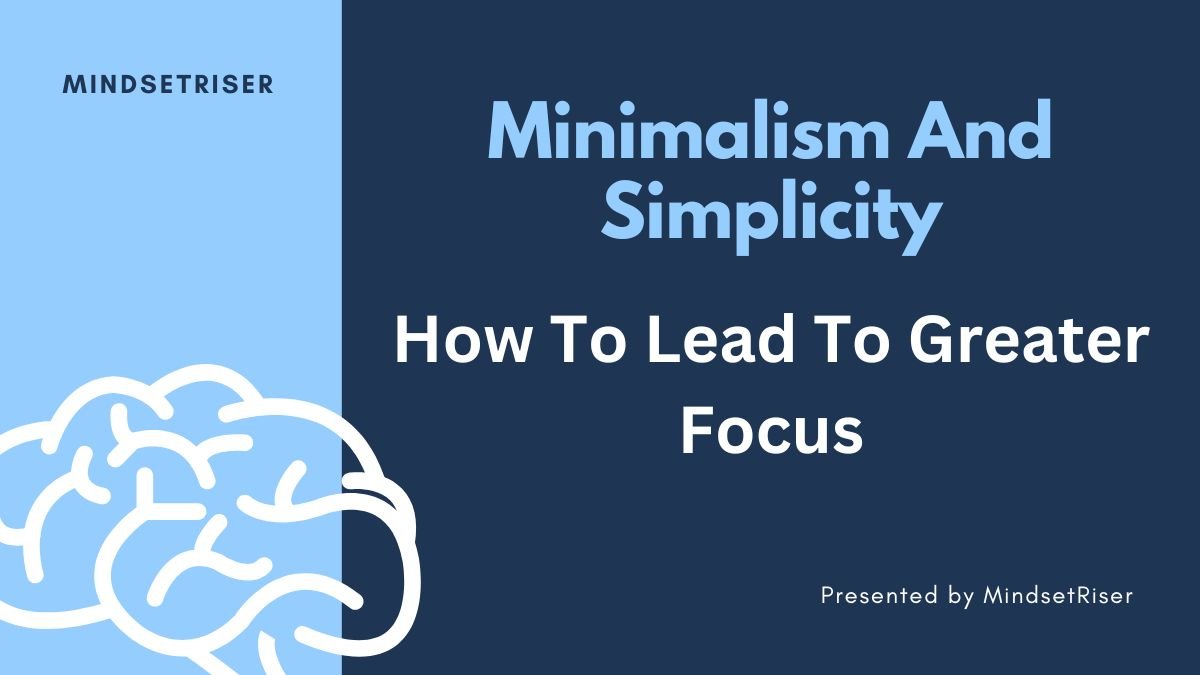Minimalism and Simplicity: How Decluttering Your Life Leads to Greater Focus
In a world filled with distractions, overwhelming to-do lists, and constant notifications, it’s easy to feel mentally cluttered. But what if the key to greater focus and productivity lies not in doing more, but in doing less? This is where minimalism and simplicity come in.
Minimalism isn’t just about reducing physical possessions—it’s a lifestyle choice that involves eliminating what doesn’t serve you, both materially and mentally. By simplifying your life and decluttering your environment, digital space, and even your mind, you can create room for greater mental clarity and focus.
In this article, we’ll explore how embracing minimalism can help you regain control, reduce stress, and achieve higher levels of productivity.
Understanding Minimalism and Simplicity
Minimalism is more than just a trend—it’s an intentional approach to life that focuses on what truly matters. At its core, minimalism is about reducing excess and prioritizing quality over quantity. This can apply to both physical possessions and mental commitments.
Simplicity, on the other hand, involves streamlining tasks, decisions, and daily routines. It’s about clearing mental and physical clutter to focus on what truly adds value to your life.
In today’s world, we are often bombarded with constant distractions—be it digital devices, material possessions, or unnecessary commitments. This overwhelming amount of noise can create a mental burden, hindering our ability to focus on important tasks. Minimalism and simplicity offer a path to freeing ourselves from this clutter.
The Science Behind Decluttering and Mental Focus
Studies have shown that clutter increases stress and reduces cognitive function. A cluttered environment can make it difficult to concentrate, while also leading to a sense of mental fatigue. In fact, research from the University of California found that people in cluttered environments experience higher levels of cortisol, the stress hormone.
When we clear physical clutter, we also clear mental space. By simplifying our surroundings and routines, we reduce decision fatigue, which leads to better focus and improved performance. Decluttering isn’t just about tidying up; it’s a strategy for improving mental bandwidth—the cognitive capacity we have for thinking, focusing, and performing tasks.
Areas of Life to Simplify for Greater Focus
There are several areas of life where simplicity can have a profound impact on your ability to focus:
Physical Space
A cluttered desk or living room can create a cluttered mind. Declutter your physical environment by removing unnecessary items and organizing the space around you. A clean workspace promotes clear thinking and boosts productivity.
Digital Space
We all spend significant time on digital devices. Emails, social media, and apps can be overwhelming. Decluttering your digital space—by organizing your inbox, turning off notifications, and eliminating unused apps—can help reduce distractions and improve mental clarity.
Schedule
A cluttered schedule leads to overcommitment, stress, and burnout. Simplify your calendar by focusing on important tasks and learning to say “no” to things that don’t align with your goals.
Relationships
Instead of maintaining a large number of acquaintances, focus on nurturing a smaller circle of meaningful relationships. Quality matters more than quantity when it comes to social connections.
Thought Patterns
We often overwhelm ourselves with mental clutter—worrying about past decisions, future events, or overthinking. Practices like mindfulness and meditation help clear mental clutter, allowing us to stay focused on the present.
Practical Steps to Embrace Minimalism
If you’re ready to embrace minimalism, start small. Here are some practical steps to help you simplify:
- Declutter one area at a time: Begin with a small task, such as clearing a drawer, organizing your email inbox, or reducing app clutter on your phone.
- Use the KonMari method: This method, popularized by Marie Kondo, encourages you to keep only the items that “spark joy.”
- Try the 1-in-1-out rule: For every new item you acquire, remove one item. This helps prevent accumulation and promotes conscious consumption.
- Schedule a Digital Detox Day: Dedicate one day per week to disconnecting from screens and social media.
- Simplify decision-making: Use tools like habit trackers or routine schedules to minimize low-value decisions.
Benefits of a Simplified Life
When you adopt a minimalist approach to life, the benefits are numerous:
- Greater mental clarity: A clutter-free environment and mind lead to clearer thinking and better focus.
- Improved decision-making: With fewer distractions and less mental clutter, you can make decisions faster and with more confidence.
- Reduced stress and anxiety: Less clutter means less to worry about, which leads to a calmer, more relaxed state of mind.
- More time for what matters: By eliminating distractions, you free up time to focus on your passions, goals, and relationships.
- Enhanced creativity and productivity: With a clear mind and simplified environment, your creativity flourishes, and your ability to get things done improves.
Conclusion
Minimalism and simplicity are not about deprivation—they are about intentional living. By decluttering your life—whether through simplifying your space, digital habits, or thought patterns—you make room for greater focus and mental clarity. The key to high productivity and success lies not in doing more, but in doing less with greater intention.
So, take a step today: start small, declutter one area of your life, and begin your journey toward greater focus and fulfillment.

